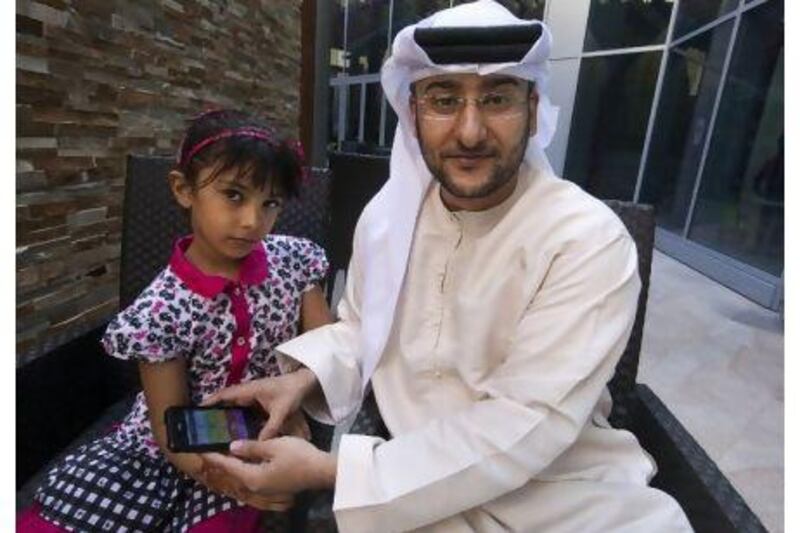DUBAI // Amer Al Hajj was so inspired by his daughters' thirst for knowledge that he created an application for the iPhone and iPad to teach them the English alphabet.
A third-year student of computer information technology at the University of Dubai, Mr Al Hajj has already sold 3,500 copies since launching the app last year.
Since May he has sold 1,025 copies at US$1 each to people in countries including Saudi Arabia, Canada and China.
"When I was searching the App Store last year I couldn't find anything with more than one example per letter of the alphabet, so for example it would be 'A for apple' and that was it," Mr Al Hajj said.
Alphabet 78 has three examples for each letter, as well as a graphic and audio sound so children can hear the letters being used in examples such as cat and frog.
His daughters learn English at school but Mr Al Hajj wanted them to have a deeper knowledge of the language from a more interactive source while they are young.
The app took him five months to create but he is now seeing the results in his daughters, aged four and six. "It's really helped Fatima with her pronunciation," he said. "She already knows every word."
Fatima, 6, said learning with apps was more fun than books.
"It's colourful and I like to play with it," she said.
Mr Al Hajj is a firm believer that learning should be fun.
"I don't like the way schools teach here," he said. "It's so boring and just memorising instead of actually using what they've learnt. It should be fun. With the apps, the children are playing while learning. As parents, we have to help make learning more fun outside the classroom."
Mr Al Hajj released a second app, Green Car, a month ago. It teaches children about fossil fuels that they should avoid. Users only get points from the "good" characters, including solar power and biofuel.
Fossil fuels, children learn, cause air pollution and global warming, and are coloured black to distinguish them from the brightly coloured "good guys".
"Both my daughters use it because it's simple," Mr Al Hajj said. "Children don't want something very complex."
He wants to inspire children to be more aware of the environment.
"Now we must all play a role in educating children to think about these issues," Mr Al Hajj said.
Abdalla Ramadan, 34, has downloaded Alphabet 78 for his two children, aged six and eight.
"This generation is computerised so these apps are the best way for them to learn," Mr Ramadan said. "They don't like books, they like playing and computers, so if it's an educational game they will learn it easily and have fun."
The interactive, tactile nature of these apps, he said, enabled the children to learn faster than through books.
Ahmed Mohammed's three daughters, aged 12, six and five, also use Alphabet 78, among many others.
"The pictures and sounds make it more interactive than most of the apps like this," Mr Mohammed said. "The girls want to see bright colours and have the interaction they get from things like the TV. Children will be more receptive to learning when it's done this way."
While some academics fear technology is eroding children's reading skills, educational bodies around the world are increasingly turning to technology to supplement and enhance traditional teaching.
Last month, the Abu Dhabi Education Council began its iClass project, which is introducing 300 government school pupils between the ages of seven and nine to greater learning through technology.
This includes learning multiplication tables with a tablet computer game and taking lessons through video chat.
Mr Mohammed said his daughters' ability to use devices such as tablet computers and PCs made them hungrier for information, and able to source and research topics independently.
"You can find so much information on the internet that their knowledge is so broad already and their confidence with technology is very high," he said.
"For this generation, the world has become much smaller."






